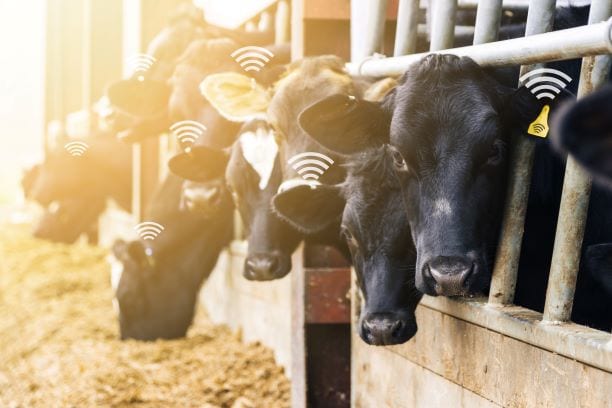For Immediate Release: October 6, 2020
Contact: R-CALF USA CEO Bill Bullard
Phone: 406-252-2516; r-calfusa@r-calfusa.com
Billings, Mont. – In comments filed yesterday with the U.S. Department of Agriculture (USDA) Animal and Plant Health Inspection Service (APHIS), R-CALF USA was the only national cattle industry trade association to strenuously oppose the agency’s proposal to mandate that America’s cattle farmers and ranchers use radio frequency identification (RFID) eartags after January 1, 2023, if they want to ship their adult cattle across state lines.
R-CALF USA requested that APHIS withdraw its proposal on the grounds that it unlawfully amends substantive federal law that expressly grants America’s cattle farmers and ranchers the option of using various forms of animal identification, including metal eartags, to lawfully achieve disease traceability.
The group’s comments state that APHIS’ proposal “abruptly deprives America’s cattle farmers and ranchers of the very legal rights” that current Federal law, grants to them – “the flexibility to choose among lower-cost technologies such as metal eartags, a choice that APHIS itself described as a “central tenet” of the 2013 Final Rule,” which is now current law governing disease traceability. Unlawfully, APHIS’ new proposal takes this choice away, the group asserts.
The comments also disclose that APHIS’ proposal contains a “hidden mandate” because cattle producers must first register their premises and secure a premises identification number (PIN) as a precondition to obtaining the soon-to-be mandated RFID eartags.
“Current regulations DO NOT require a producer to register his or her premises as a prerequisite to shipping cattle interstate.” But, the proposal to mandate RFID does, the comments state.
The group’s comments also point out that the RFID mandate disadvantages cattle producers who reside in states with insufficient packing capacity because those producers will have to incur the costs of higher-priced RFID tags while producers in states with adequate packing capacity can avoid such costs altogether as they likely will never have to ship cattle across state lines.
The group also criticized APHIS’ public promotional campaign for its proposal in which it used the imported Canadian cow detected with BSE or mad cow disease in 2003 as an example of why the RFID mandate was needed. In a Beef Magazine article, APHIS stated that the cow’s origin was only determined by a polaroid picture that APHIS obtained from the infected cow’s previous owner. But R-CALF USA claims this is an effort to deceive the public and the industry because the infected cow was affixed with an official Canadian eartag traceable to the cow’s health certificate and to her herd of origin.
In its concluding remarks, the group states that APHIS misinterprets the Executive Order by President Trump that the agency claims gives it authority to mandate RFID without a formal rulemaking process. Instead, the agency is attempting to issue its mandate with a simple notice.
The group asserts the Executive Order “does not in any way provide APHIS with a path forward for which to alter and amend current regulations, i.e., substantive Federal law,” unless the agency first complies with the lawful Administrative Procedure Act to initiate a formal rulemaking process.
# # #
R-CALF USA (Ranchers-Cattlemen Action Legal Fund United Stockgrowers of America) is the largest producer-only lobbying and trade association representing U.S. cattle producers. It is a national, nonprofit organization dedicated to ensuring the continued profitability and viability of the U.S. cattle industry. Visit www.r-calfusa.com or, call 406-252-2516 for more information.






